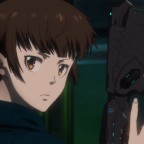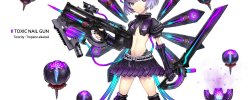Top 10 Forgotten Anime List (part 3)
It’s the last part of the list, full of forgotten goodies that should be should be savored earlier then later. Before you read the last three titles, here’s a trick question: during the writing process of this list I’ve found an interesting pattern which all the of these forgotten series share. Have you noticed it yet?
Saber Marionette (including J Again and J to X)
Short introduction:
Summing up Saber Marionette is hard, but if I had to dilute it I’d say it’s a comedy driven action series with an apocalyptic science fiction background. Saber Marionette was an eye candy full of action, silly antics and girl harems. It also had a metaphoric side to it. It showed a world in which men have given up on women and have come to love women-shaped robots called Marionettes. At its core Saber Marionette mirrors Japan’s otaku society, in which people get attached to their favorite figurines/idols/series and give up on having a real-life relationship with women/men.
Saber Marionette was separated into three consecutive seasons, called J, J Again and J to X respectively. Saber Marionette J aired in Japan in late 1996 and early 1997. It was later released by Bandai Entertainment on VHS tapes in 1999 (and later on DVDs). The second and third seasons were also released by Bandai.
Current State:
The series is still license by Bandai Entertainment, and surprisingly enough Saber Marionette J is still in print today. Sadly, the same cannot be said for J Again and J to X, which have been out of print for years now and have practically vanished from the face of the earth.
Chance of revival:
Possible. The Saber Marionette franchise is old yet surprisingly sturdy. The demand for classics such as Saber Marionette has instigated the resurgence of several series from the 90s, including even older series such as Slayers and Fist of the North Star. However, Bandai Entertainment is not the one releasing these classics and has publically announced that it will not reissue any of its old franchises. Furthermore even if relinquished from Bandai’s hands (by the license expiring of course) it is questionable whether an old classic like Saber Marionette will be re-licensed in today’s waning anime market.
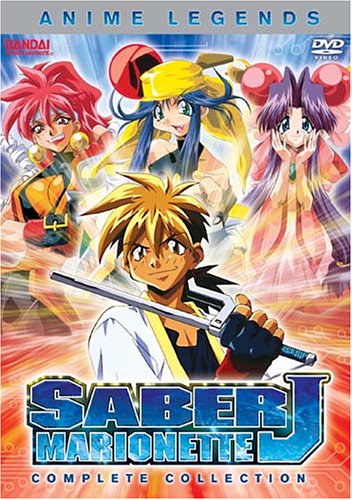
Short introduction:
A melancholic tale about angels who are born into a purgatory-like environment, Haibane Renmei asked hard questions about Christianity, salvation and the value of one’s life. Haibane Renmei wasn’t afraid to talk about or portray to true meanings of death, but did so gently and skillfully. The series aired in Japan during 2002 and was released by Geneon Entertainment (then still called Pioneer) in late 2003 and early 2004. Haibane Renmei is regarded as a masterpiece, and has recieved great praise in Japan and the U.S. alike.
Current State:
The series is unlicensed. The prices of the series box set as well as the individual DVDs have soared into the skies.
Chance of revival:
Very Good. Just like Lain, Haibane Renmei has recieved a retouched and extended Blu-ray edition in Japan in 2010. And just like Lain, FUNimation has been showing interest in acquiring the license to this evergreen title. Considering the artistic and intellectual values embodied in Haibane Renmei it is without a doubt one of those series that are sure to make a silent comeback in a year or two.
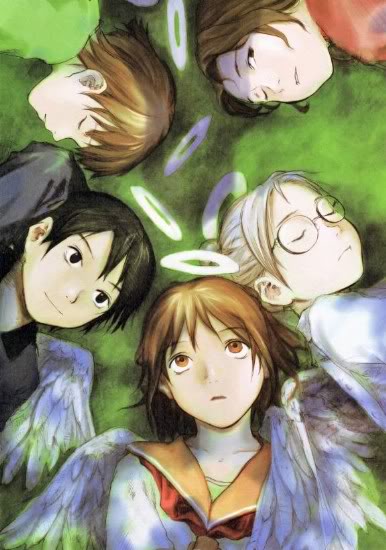
Short introduction:
A mature take on virtual reality and MMORPGs, .hack//Sign was a precursor to the upcoming popularity of massive online gaming. Instead of succumbing to shallow representations of actual role playing games .hack//Sign focused on the mentality of the players behind the characters. It delved deep into philosophical questions, such as what defines a human being? And can a game trick our minds into seeing or feeling things?
.hack//Sign was also a visual and audio wonder. There has yet to be another anime which uses its music in such a strong and influential way as .hack//Sign did. The series was released in Japan during 2002 and was released in the U.S. by Bandai Entertainment between 2003 and 2004. It was very successful and its plot was continued in an ever-expending chain of games, anime series, manga and books.
Current State:
The series is still license by Bandai Entertainment, but has gone out of print and is disappearing gradually. The reason the series has managed to remain available for so long stems from the fact that it received no less than 3 different editions in the U.S, in less than 4 years!
Chance of revival:
Possible? The entire .hack franchise, in all its incarnations, is the property of Bandai (Namco Bandai Japan to be exact). Hence Bandai cannot lose the license to a series which it itself created. That said, Bandai has opted to license its series to other companies in the upcoming years, which means the license to .hack//Sign can be acquired even today. FUNimation is currently set on releasing the latest iteration in the series, called .hack//Quantum, in February. Rumor has it that if .hack//Quantum performs very good FUNimation may consider licensing other series in the franchise. There might still be hope for this rare gem yet.
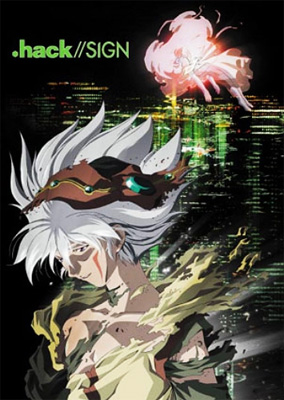
So what did we learn from this list? A lot of the (best) forgotten anime series are set on making a comeback in the upcoming years. FUNimation is possibly the only U.S. distributor with the will and power to relicense lost series, and I am thankful that it indeed intends to do so. Obviously, there are many more old forgotten series that fans hope will resurface eventually (Sailor Moon anybody?). This list is my personal interpretation and consists of series which I not only consider as anime but also conceive as art. Forgotten they may be, but demand for them has not been muffled by the dusty touch of time. I shall patiently await their return. And so should you.








